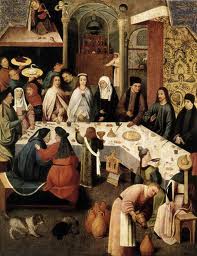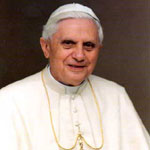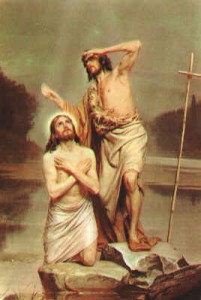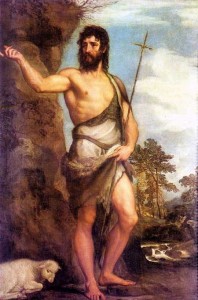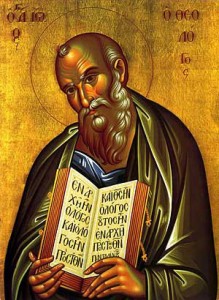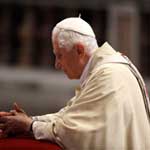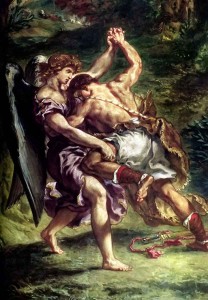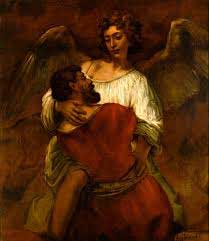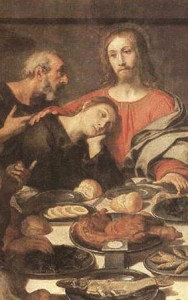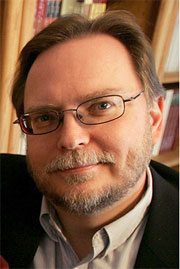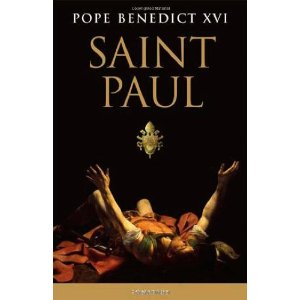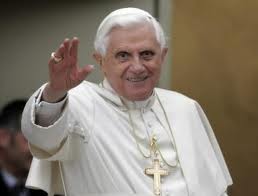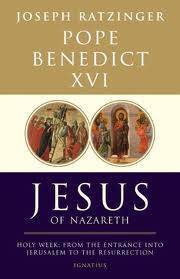VATICAN CITY, JUNE 22, 2011 (Zenit.org).- Here is a translation of the Italian-language catechesis Benedict XVI gave today during the general audience held in St. Peter’s Square. The Pope continued with his series of catecheses on prayer, turning today to a consideration of the Book of Psalms.
* * *
Dear brothers and sisters,
In the preceding catecheses, we paused to consider a number of Old Testament figures who are particularly significant for our reflection on prayer. I spoke about Abraham, who intercedes for the foreign cities; about Jacob, who in his nighttime combat receives a blessing; about Moses, who begs for forgiveness for his people; and about Elijah, who prays for the conversion of Israel. With today’s catechesis, I would like to begin down a new path: Rather than commenting on particular accounts of persons at prayer, we will enter into the “prayerbook” par excellence, the Book of Psalms. In the upcoming catecheses we will read and meditate on a number of the most beautiful psalms which are also dearest to the Church’s tradition of prayer. Today I would like to introduce them by speaking about the Book of Psalms as a whole.
The Psalter presents itself as a “formulary” of prayers, a collection of 150 psalms that the biblical tradition gives to the people of believers in order that they may become their — our prayer — our way of addressing God and of relating to Him. In this book, the whole of human experience with its many facets finds expression, along with the entire range of emotions that accompany man’s existence. In the Psalms, joy and suffering, desire for God and the perception of one’s own unworthiness, delight and the sense of abandonment, trust in God and painful solitude, fullness of life and fear of death are all interwoven and expressed. The believer’s whole reality flows into these prayers, which first the people of Israel and then the Church took up as a privileged meditation on the relationship with the one God, and the fitting response to His self-revelation in history.
As prayer, the Psalms are manifestations of the soul and of faith, in which everyone can recognize himself and in which there is communicated that experience of special closeness to God, to which each man is called. And it is the whole complexity of human existence that converges in the complexity of the different literary forms of the various psalms: hymns, lamentations, individual and collective supplication, songs of thanksgiving, penitential psalms, and other genre that are found in these poetic compositions.
Despite this wide range of expression, two great areas can be identified that synthesize the prayer of the Psalter: petition, which is connected with lament, and praise — two interconnected and almost inseparable dimensions. For petition is animated by the certainty that God will respond, and this opens up to praise and thanksgiving; and praise and thanksgiving flow from the experience of salvation received, which assumes the need for the help expressed by the petition.
In petition, the one who prays laments and describes his situation of distress, of danger, of desolation; or, as in the penitential psalms, he confesses guilt and sin, and asks to be forgiven. He lays bare his neediness before the Lord, in the confidence of being heard, and this implies an acknowledgement of God as good, as desirous of the good, and as the “lover of life” (cf. Wisdom 11:26) who is ready to help, save and forgive. Thus, for example, the Psalmist in Psalm 31 prays: “In thee, O Lord, do I seek refuge; let me never be put to shame [ … ] take me out of the net which is hidden for me, for thou art my refuge (verses 2,5 [1,4]). Therefore, already in the lament something of praise may emerge, announcing itself in the hope of divine intervention, and becoming explicit once divine salvation has become a reality.
In an analogous way — in the psalms of thanksgiving and of praise — in remembering the gift received or in contemplating the greatness of God’s mercy, one recognizes one’s own littleness as well as one’s need for salvation, which is at the foundation of petition. In this way, one confesses to God one’s own condition as a creature, inevitably marked as it is by death, and yet the bearer of a radical desire for life. For this reason, in Psalm 86 the Psalmist exclaims: “I give thanks to thee, o Lord my God, with my whole heart, and I will glorify thy name forever. For great is thy steadfast love toward me; thou hast delivered my soul from the depths of Sheol” (verses 12, 13). In this way, in the prayer of the Psalms, petition and praise are interwoven and blend together into one unique song that celebrates the Lord’s eternal grace that bends down to our frailty.
The book of the Psalter was given to Israel and to the Church precisely in order that the people of believers might be permitted to unite themselves to this song. The Psalms, in fact, teach us to pray. In them, the Word of God becomes the word of prayer — and they are the Psalmists’ inspired words — which also become the word of the one who prays the Psalms. This is the beauty and the special nature of this biblical book: Unlike other prayers we find in sacred Scripture, the prayers contained [in the Book of Psalms] are not inserted into a narrative story which specifies either their meaning or their function. The Psalms are given to the believer precisely as a text of prayer, which has as its one end that of becoming the prayer of the one who takes them up and, with them, addresses himself to God. Since they are the Word of God, he who prays the Psalms speaks to God with the very words that God has given to us; he addresses Him with the words that He Himself gives us. Thus, in praying the Psalms we learn to pray. They are a school of prayer.
Something analogous happens when a child begins to talk; when he learns, that is, to express his feelings, emotions, and needs with words that do not belong to him naturally, but which he learns from his parents and from those who live around him. What the child wants to express is his own personal experience, but the means of expression belong to others; and little by little he appropriates them — the words received from his parents become his words, and through those words he also learns a way of thinking and feeling; he enters into a whole world of concepts, and in this [world] he grows, relates with reality, with men and with God. At last, the language of his parents becomes his language; he speaks with the words received from others, which by now have become his words.
And so it is with the prayer of the Psalms. They are given to us so that we might learn to address ourselves to God, to communicate with Him, to talk to Him about ourselves with His words, to find language for an encounter with Him. And, through those words, it will also be possible to know and to receive the standards of his way of acting, to approach the mystery of his thoughts and of his ways (cf. Isaiah 55:8-9), so as to grow always more in faith and love. As our words are not only words, but also teach us about a real and conceptual world, so also these prayers teach us about the heart of God, for which reason are we able not only to speak with God, but also to learn who God is and — in learning how to speak with Him — we learn what is it to be man, to be ourselves.
In this regard, the title given to the Psaltery by the Jewish tradition appears significant. It is called Tehellim, an Hebraic term that means “songs of praise,” [which comes] from the root word we find in the expression “Halleluiah” — literally: “praise the Lord.” Thus, even though this prayerbook is so multifaceted and complex — with its various literary genre and with its connection between praise and petition – it is ultimately a book of praise, that teaches us to give thanks, to celebrate the greatness of the gift of God, to acknowledge the beauty of His words and to glorify His holy Name.
This is the most fitting response before God’s self-revelation, and the experience of His goodness. By teaching us to pray, the Psalms teach us that, even in the midst of desolation, in suffering, God’s presence remains and is the source of wonder and of consolation; we can cry, beg, intercede, lament, but [we do so] in the knowledge that we are walking toward the light, where praise can be definitive; “in thy light do we see light” (Psalm 36:10 [9]).
But beyond the book’s general title, the Jewish tradition has also given specific titles to many of the psalms, attributing them in great part to King David. A figure of notable human and theological depth, David is a complex personality who passed through the most varied experiences fundamental to life. A young shepherd of his father’s flock — passing through the ups and downs and at times dramatic events of life — he becomes king of Israel, the shepherd of God’s people. Although a man of peace, he fought many wars; an untiring and tenacious seeker of God, yet he betrayed His love, and this is characteristic: He always remained a seeker of God, even though he sinned gravely many times; a humble penitent, he received divine forgiveness, even divine pity, and he accepted a fate marked by suffering. Thus, in all his weakness, David was a king “after God’s own heart” (cf. 1 Samuel 13:14); that is, a passionate man of prayer, a man who knew what it meant to petition and to praise. The connection of the Psalms with this illustrious king of Israel is important, then, for he is a messianic figure, the Lord’s Anointed, in whom the mystery of Christ is in some way foreshadowed.
Just as important and meaningful are the ways and frequency with which the words of the psalms are repeated in the New Testament, taking up and underscoring the prophetic value suggested by the Psalter’s connection with the messianic figure of David. In the Lord Jesus, who during His earthly life prayed with the Psalms, they find their definitive fulfillment and reveal their fullest and most profound meaning. The prayers of the Psalter, with which we speak to God, speak to us of Him, they speak to us of the Son, the image of the invisible God (Colossians 1:15), who fully reveals to us the Face of the Father. The Christian, therefore, in praying the Psalms, prays to the Father in Christ and with Christ, taking up those songs within a new perspective, which finds its ultimate interpretative key in the Paschal mystery. Thus do the horizons of the one who prays open up to unexpected realities — each Psalm acquires a new light in Christ and the Psalter is able to shine in all its infinite richness.
Dearest brothers and sisters, let us take this holy book in hand; let us allow ourselves to be taught by God to address ourselves to Him; let us make the Psalter a guide that helps us and accompanies us daily along the way of prayer. And let us, like Jesus’ disciples, also ask: “Lord, teach us to pray” (Luke 11:1), opening our hearts to receive the Teacher’s prayer, in which all prayers attain their fulfillment. Thus, made sons in the Son, will we be able to speak to God calling Him “Our Father.” Thank you.
[Translation by Diane Montagna]
 Sharon Doran serves as the teaching director of “Seeking Truth.” An experienced Bible Study teacher, Sharon has a passion for scripture that will motivate and challenge you to immerse yourself in God’s Word and apply His message to your every day life.
Sharon Doran serves as the teaching director of “Seeking Truth.” An experienced Bible Study teacher, Sharon has a passion for scripture that will motivate and challenge you to immerse yourself in God’s Word and apply His message to your every day life.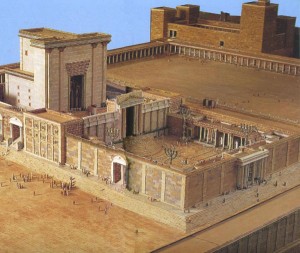 Episode 6 – John Chapter 2 v. 13-25 The clearing of the temple. Temple history and it’s significance in salvation history.
Episode 6 – John Chapter 2 v. 13-25 The clearing of the temple. Temple history and it’s significance in salvation history. “Seeking Truth” is an in depth Catholic Bible Study, commissioned by the Archdiocese of Omaha in response to John Paul II’s call to the New Evangelization as well as Pope Benedict XVI’s exhortation for all Catholics to study scripture. To learn more go to: www.seekingtruth.net
“Seeking Truth” is an in depth Catholic Bible Study, commissioned by the Archdiocese of Omaha in response to John Paul II’s call to the New Evangelization as well as Pope Benedict XVI’s exhortation for all Catholics to study scripture. To learn more go to: www.seekingtruth.net


